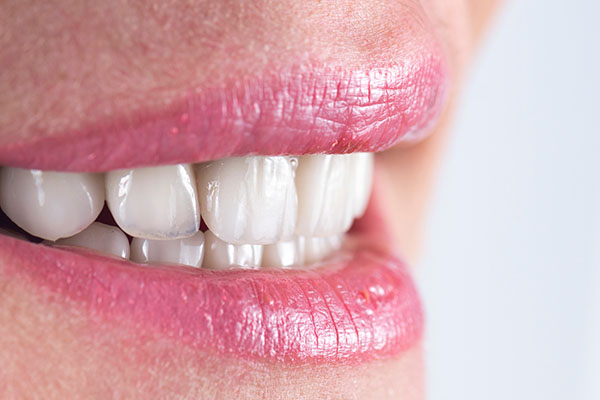 Dental veneers are common restorations that are used to change the size, shape, or color of teeth. These can be made of porcelain or resin and are most commonly used on the front teeth. When these restorations are placed, there is a margin between the tooth and the porcelain or resin material. This can leave a vulnerable spot for a cavity to form. However, dental decay is largely preventable. Patients should consider these ways to prevent recurrent decay around dental restorations.
Dental veneers are common restorations that are used to change the size, shape, or color of teeth. These can be made of porcelain or resin and are most commonly used on the front teeth. When these restorations are placed, there is a margin between the tooth and the porcelain or resin material. This can leave a vulnerable spot for a cavity to form. However, dental decay is largely preventable. Patients should consider these ways to prevent recurrent decay around dental restorations.
Strategies for preventing cavities under veneers
Because dental restorations can be a reservoir for plaque, most require some level of special care. Before choosing a cosmetic treatment such as veneers, a patient must be willing to commit to caring for them.
Routine dental X-rays
X-rays are a valuable tool for dentists. They allow the provider to see what is going on beneath the surface. Often, dentists can first detect decay around a veneer on an X-ray taken at a routine dental appointment. A dark shadow around the margin of the restoration is typically the first sign that extra attention is needed. If caught in the early stages, treatment may be less invasive. X-rays should be taken regularly, and the specific schedule is based on a patient's needs. Those with veneers may need X-rays more often.
Good oral hygiene habits
While brushing and flossing are important for everyone, they are especially crucial habits for people who have veneers. Because the margin of the restoration is vulnerable to decay, extra care must be taken to keep it clean. Patients should be brushing after every meal or a minimum of twice daily. Because dental decay often begins between the teeth, flossing is an important habit for all patients. It matters more when restorations like veneers are present. Oral hygiene aids like mouthwash and a water flosser can also be used to keep the mouth plaque-free.
Diet changes
Most patients know that sugary foods are a common culprit in cavity formation. However, many do not realize that the texture of food can be equally important. Sticky foods can be detrimental around the margins of veneers. As the food breaks down, sugar and acid are released on the tooth. Patients should choose foods that do not leave a residue or film. Drinking sugary beverages is also detrimental to dental health, as the mouth is being exposed to an acidic liquid.
Conclusion
Dental veneers can completely transform a patient's smile. One may feel more confident smiling after having these restorations placed and feel better about themself in general. However, to keep a beautiful smile, special care must be taken. Patients must be aware of the commitment required to keep veneers looking great. Before beginning the procedure, the patient and dentist should discuss how to keep the teeth under veneers healthy. In this way, the patient can enjoy the benefits of these restorations for years to come.
Request an appointment or call North Coast Dental Implants & Cosmetics at 760-705-3407 for an appointment in our San Marcos office.
Related Posts
Veneers can improve a patient’s smile in many ways by covering up imperfections in teeth with natural-colored shells. Staining on front teeth is one of the most popular reasons patients choose this type of restoration. People who have lived with discolored teeth can feel uncomfortable smiling in public, and other treatment options may not be…
Dental veneers are made of porcelain or composite resin material. The shells cover the front surface of a patient's front teeth and can be used to change the size, shape, or color of teeth. These restorations have been used for years to transform smiles, but some may wonder about their permanency. There are several reasons…
There are numerous cosmetic procedures to improve someone’s smile, and veneers are a popular option. There are two types of veneers: Porcelain and composite. Both are used for minor cosmetic issues such as discolored teeth, cracks or chips, gaps between teeth, and worn-down enamel.Porcelain is used more often as there are numerous benefits, but this…
